One evening in early November, while scrolling through her phone, artist Hanh Thuy (49 years old) was shocked to read a message. From the photos she posted on social media, someone had taken them and created a fake account, then texted many of Hanh Thuy’s colleagues to borrow money.
Immediately, Hanh Thuy posted on her personal page, urgently announcing the situation she was facing. She also hurriedly reported to the authorities to handle the incident.
“The scammers’ tricks are very sophisticated. They imitated my every texting and talking to deceive my colleagues. Luckily, I discovered it in time. As soon as I posted the urgent notice, many other artists were also upset and said they had encountered this situation more than once. Most recently, actor Ba Thang cried because he was scammed out of 35 million VND with similar tricks,” the female artist recounted.
Not only Hanh Thuy, many Vietnamese stars, from My Tam Hoa Minzy, Duc Phuc, Viet Huong… continuously posted to warn fans. Meanwhile, Son Tung had his image faked when participating in a reality show, forcing the singer's crew to immediately make a correction.
Vietnamese showbiz is full of warnings
Recently, many celebrities have become targets of online fraud through impersonation on social networks. The latest case involves BTV Hoai Anh.
On the evening of November 11, the female editor posted a long post on her personal page to urgently inform about being scammed by many accounts impersonating her. These pages had the same name as her and reposted almost all of the female editor's photos and articles on their main page.
Hoai Anh said that in recent days, she has received many messages from friends and colleagues warning her about these fake pages. In particular, one of these pages even called on viewers to transfer money to invest in stocks. She confirmed that she only used a personal Facebook account with a blue tick under the name "Nguyen Hoai Anh", along with a fanpage "Editor Hoai Anh" which was newly created in October.
"There are quite a few fake pages, but this page seems to be impersonating Hoai Anh and calling on people to transfer money to invest in stocks. This is quite serious because this account does not just stop at faking content or getting views and likes, but also has a tendency to scam," Hoai Anh added.

The method that scammers used on Hoai Anh is similar to that of many other stars. These subjects use deepfake, which allows them to create videos and sounds of celebrities to the point of being unrecognizable. These AI products are then exploited to commit fraud, promote illegal goods, steal users' personal information or trick users into downloading malware.
These acts directly and seriously affect the image and reputation of celebrities. Not only that, some artists are also victims of fraudsters.
In the past few months, almost every day at least one artist has spoken up on their personal page, to warn the public. However, this problem is becoming more and more painful, with sophisticated and unpredictable tricks.
A few days ago, singer My Tam encountered a situation where AI impersonated her voice to promote illegal products. Through her management company, My Tam confirmed that she is coordinating with platforms to remove infringing content and working with law enforcement agencies to intervene and handle the case.
"We hope that our audience will be vigilant with unofficial content from the company and report it when they discover similar content and behavior. The audience should be vigilant to avoid being tricked into buying fake and harmful products, leading to unfortunate incidents," the singer emphasized.
At the end of August, artist Hong Dao also expressed her anger at the fact that many social media accounts were using her image to create fan pages selling weight loss drugs and foods. These pages attracted thousands of followers.
Mac Van Khoa, MC Lai Van Sam, Dan Truong, Ly Hai and many Vietnamese artists also expressed their concern when a series of websites impersonated their names to advertise functional foods, get-rich-quick courses, loan shark apps... Among them, actor Mac Van Khoa said he was really concerned when the AI technology made fakes so realistically that many people were easily fooled.
“Khoa was just sent a clip of an AI impersonating him. It showed his face and voice with completely false words, everyone be careful. If you see any unusual information online, please report it and let Khoa know so that he can warn everyone to avoid unfortunate incidents,” he wrote.
The most unlucky person was actor Ba Thang. Because he was subjective and did not check the information carefully, Ba Thang immediately transferred 35 million VND to the scammer, not knowing that this was just a fake account of his colleague.
"What a cry. I was deceived because I was too trusting," Ba Thang sadly shared on his personal page.
Nightmare of the Stars
Over the years, hundreds of stars around the world have faced the fear of AI fraud. The forms of exploitation that cybercriminals use include: financial fraud; creating malicious content and commercial fraud. The most common is that criminals create Deepfake voices or videos of celebrities to call for investment in fake projects (cryptocurrency, charity funds) or even deceive friends and relatives of the victims.
In addition, these subjects also create pornographic content, causing serious damage to the honor, career and destroying the image of stars.
In October 2024, security software company McAfee announced a list of the top 10 most impersonated celebrities, including famous names such as Scarlett Johansson, Kylie Jenner and Taylor Swift.
Pop star Taylor Swift is a frequent target of scams involving the unauthorized use of her name and image. These scams include impersonating the singer to promote unauthorized products, concert ticket scams, tricking fans into buying fake tickets or giving away counterfeit products.
Earlier this year, a 53-year-old French interior designer named Anne first recounted her experience in an interview with Seven to Eight on French channel TF1. Anne said she was first contacted on Instagram by someone claiming to be Pitt's mother. "She told me that her son needed someone like me," Anne said.
A few days later, an account claiming to be Pitt got in touch. "At first I thought it was fake, it was ridiculous. But I'm not used to social media and I really didn't understand what was happening to me," Anne recalled.
The scammers told Anne that Pitt needed money to pay for kidney treatment, but he couldn't pay for it himself because his bank account was frozen in divorce proceedings. To convince Anne that Pitt was really behind the account, the scammers sent an AI-generated, doctored image of the actor lying in a hospital bed to verify his identity. Believing that she and Pitt were in a romantic relationship, Anne eventually sent the scammers 850,000 USD .
Similarly, Johnny Depp also warned fans that he was being scammed by AI impersonators. The actor said that many social media accounts and emails impersonated him and his crew members to approach and trick people into transferring money.
According to People , in 2018, the US Federal Trade Commission warned about the problem of impersonating artists on social networks. Many stars have intervened in the law to punish scammers. However, with increasingly sophisticated tricks and the strong development of artificial intelligence, the above problem has not been completely solved. This has become a nightmare for hundreds of stars around the world .
Source: https://baoquangninh.vn/ai-hai-my-tam-son-tung-3384322.html




![[Photo] Deep sea sand deposits, ancient wooden ship An Bang faces the risk of being buried again](https://vphoto.vietnam.vn/thumb/1200x675/vietnam/resource/IMAGE/2025/11/13/1763033175715_ndo_br_thuyen-1-jpg.webp)





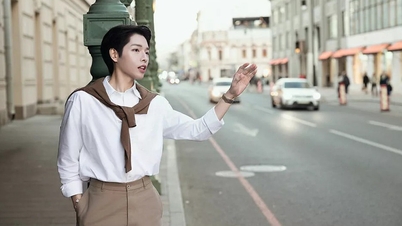






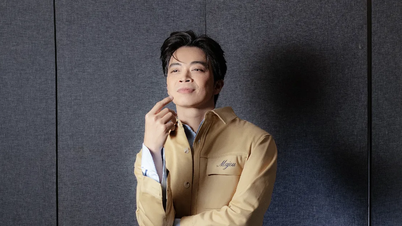

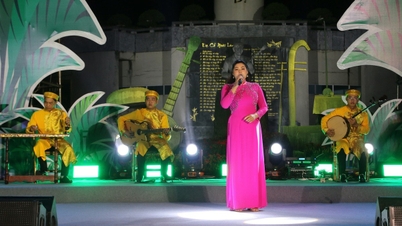













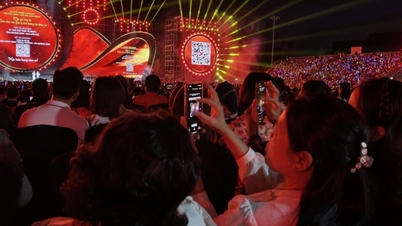

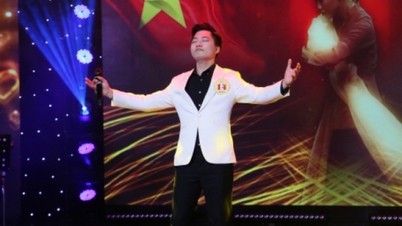




































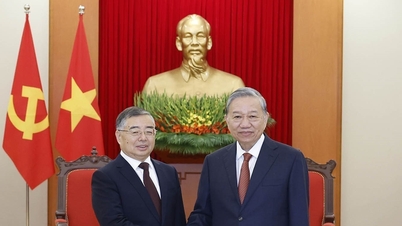
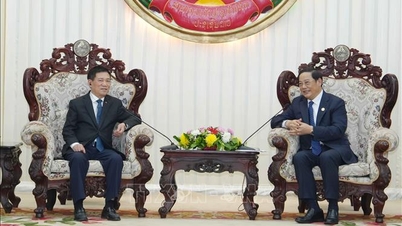


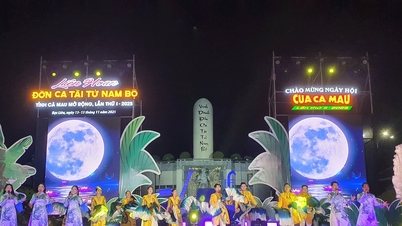




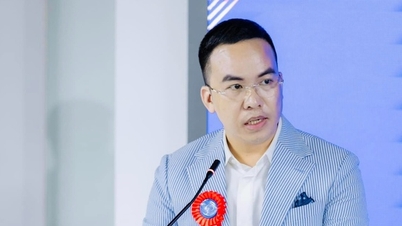


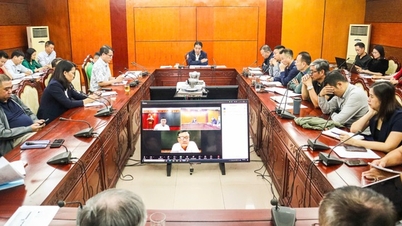

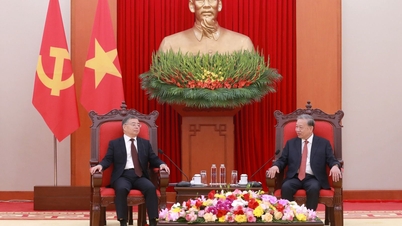
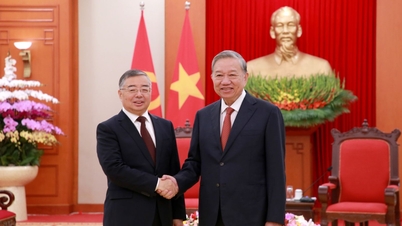






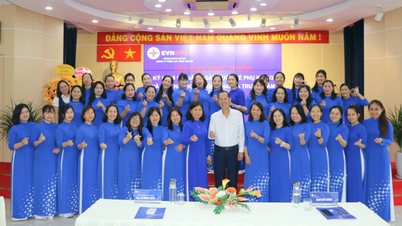
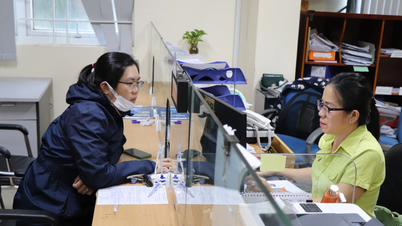




![Dong Nai OCOP transition: [Article 3] Linking tourism with OCOP product consumption](https://vphoto.vietnam.vn/thumb/402x226/vietnam/resource/IMAGE/2025/11/10/1762739199309_1324-2740-7_n-162543_981.jpeg)







Comment (0)